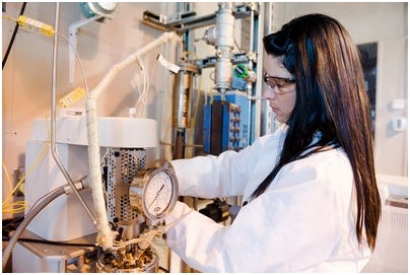
The chemical engineers at Enerkem's Innovation Centre in Westbury, Quebec, successfully developed a process that uses the company’s proprietary waste-to-biofuel technology to produce a new biofuel with a Research Octane Number (RON) of up to 112. This is 20 points higher than the average octane rating found in regular motor gasoline.
By using bio-dimethyl ether, a product derived from Enerkem's biomethanol, combined with a DME-to-high-octane-gasoline catalyst developed by the National Renewable Energy Laboratory in the US, the Enerkem-NREL team was the first to demonstrate the production of an alternative fuel rich in paraffins at pilot scale.
"It's a major breakthrough that could enable the development of a new non-oxygenated biofuel made from waste on a commercial scale," explained Stéphane Marie-Rose, Director of Enerkem's Innovation Centre.
According to the company, there are many possible applications for a high-octane biofuel derived from Enerkem's bio-DME. The non-oxygenated additive could serve the specialized fuels market, such as the aviation gasoline and professional motorsport sector. As with the biomethanol and advanced ethanol produced at commercial scale, this new biofuel allows better combustion, replaces fossil fuels and reduces greenhouse gas emissions.
Enerkem will continue developing and optimizing the process, as well as evaluating the potential commercial applications, in the coming months.

